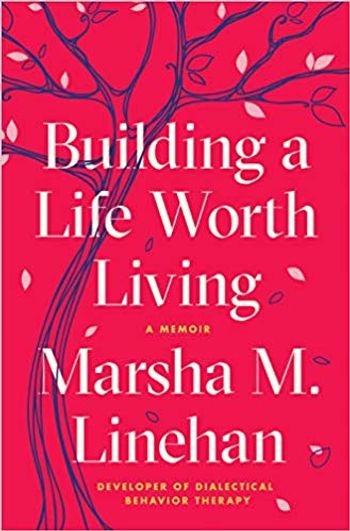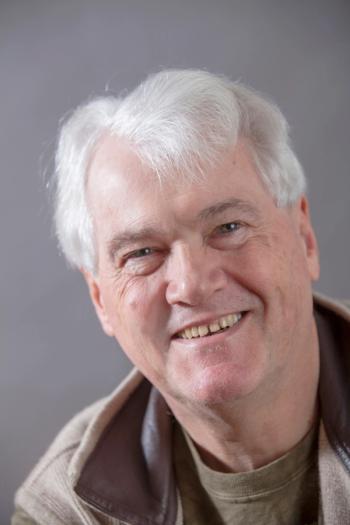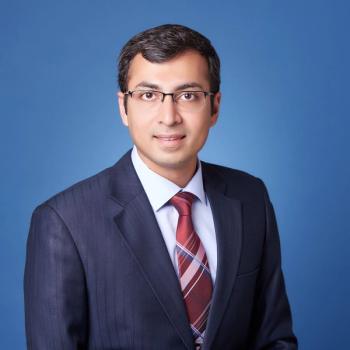
How have the pharmaceutical industry and academic guild interests shaped the evolution of psychiatry? Lisa Cosgrove, PhD, has something to say about it.

Dr Aftab is a psychiatrist in Cleveland, Ohio, and clinical assistant professor of psychiatry at Case Western Reserve University. He writes online on his blog Psychiatry at the Margins.

How have the pharmaceutical industry and academic guild interests shaped the evolution of psychiatry? Lisa Cosgrove, PhD, has something to say about it.

"The idea of seeing a patient, not just a diagnostic label, is an extremely valuable lesson. Being primed to see certain behaviors as pathological in certain contexts and perfectly normal in others is something that all doctors should be aware of." -Susannah Cahalan

To read Linehan’s memoir is to realize that she underwent a crucifixion and resurrection of her own, and that the Pontius Pilate in her story is psychiatry itself.

A Conversation in Critical Psychiatry with Peter J. Whitehouse, MD, PhD.

The author shares some thoughts on the current state of biopsychosocial model as well as the new proposed reinterpretation of BPS as a theory of causality.

This CME activity provides an understanding of treatment resistant depression (TRD) in elderly patients.

Since a disappointingly large number of people equate the critical psychiatry movement with the antipsychiatry movement, two psychiatrists shed light on why that is not the case.

"Psychiatry has been frozen in time since the 80s, and hence the absence of progress since then is no surprise." So says, S. Nassir Ghaemi, MD, MPH, in the next installment of Conversations in Critical Psychiatry with Awais Aftab, MD.

"Go out into the real world; work in prisons, in run-down towns with high unemployment or with refugees or in remote areas. Go overseas or into underprivileged parts of your own country. And that is how you learn about real psychiatry," says Niall McLaren, MBBS, FRANZCP, in the next installment of Conversations in Critical Psychiatry.

It is a rare feat for a conceptual book on psychiatry to generate as much acclaim, influence, longevity, and readership within the profession as has The Perspectives of Psychiatry. Paul R. McHugh, MD is featured in this Conversations series.

Conversations in Critical Psychiatry with Derek Bolton, PhD, recognized internationally as a disginguished voice in philosophy and psychiatry.

What do we know about psychiatric symptoms that may present in patients who also have diabetes? Take the quiz and learn more.

Anxiety disorders are highly prevalent in the general population, particularly in those with medical illnesses such as diabetes.

A series aimed at engaging prominent individuals who have made meaningful criticisms of psychiatry and have offered constructive alternative perspectives. First interview: Allen Frances, MD, Chair of the DSM-IV Task Force.

At a minimum, a mental disorder is considered an undesirable and unwanted condition either for the individual or the society. However, that is clearly very relativistic and does little to protect against social misuse of disorder designation.

A dysfunction-based defense against misuse of disorder designation has serious conceptual deficiencies, is vulnerable to social biases, and offers very little protection in practice.

Part 1 of a three-part series on a pertinent philosophical question in the era of diagnostic inflation: What conceptual means are available to prevent deviant and undesirable behavioral conditions from being diagnosed as mental disorders as a result of social bias and stigma?

Here is a selection of eight research developments that may impact psychiatric clinical practice in the coming years.

A look at therapist Esther Perel’s podcast on couples therapy, Where Should We Begin?

If we fail to cultivate and exercise virtues such as wisdom, curiosity, intellect, aesthetic sensitivity, compassion, empathy, and generosity, we fail to exemplify human flourishing.

The author shares his views on important topics in 2017 in the field of psychiatry.

A lighthearted exploration of Erikson’s stages through residency training.

An overview of various aspects of taking notes and suggestions for effective documentation.

Thomas Szasz-a psychiatrist-was a lifelong ferocious critic of the institution of psychiatry. A significant body of discourse on the notion of mental disorder by psychiatrists and non-psychiatrists alike has been centered on understanding and responding to his critique.